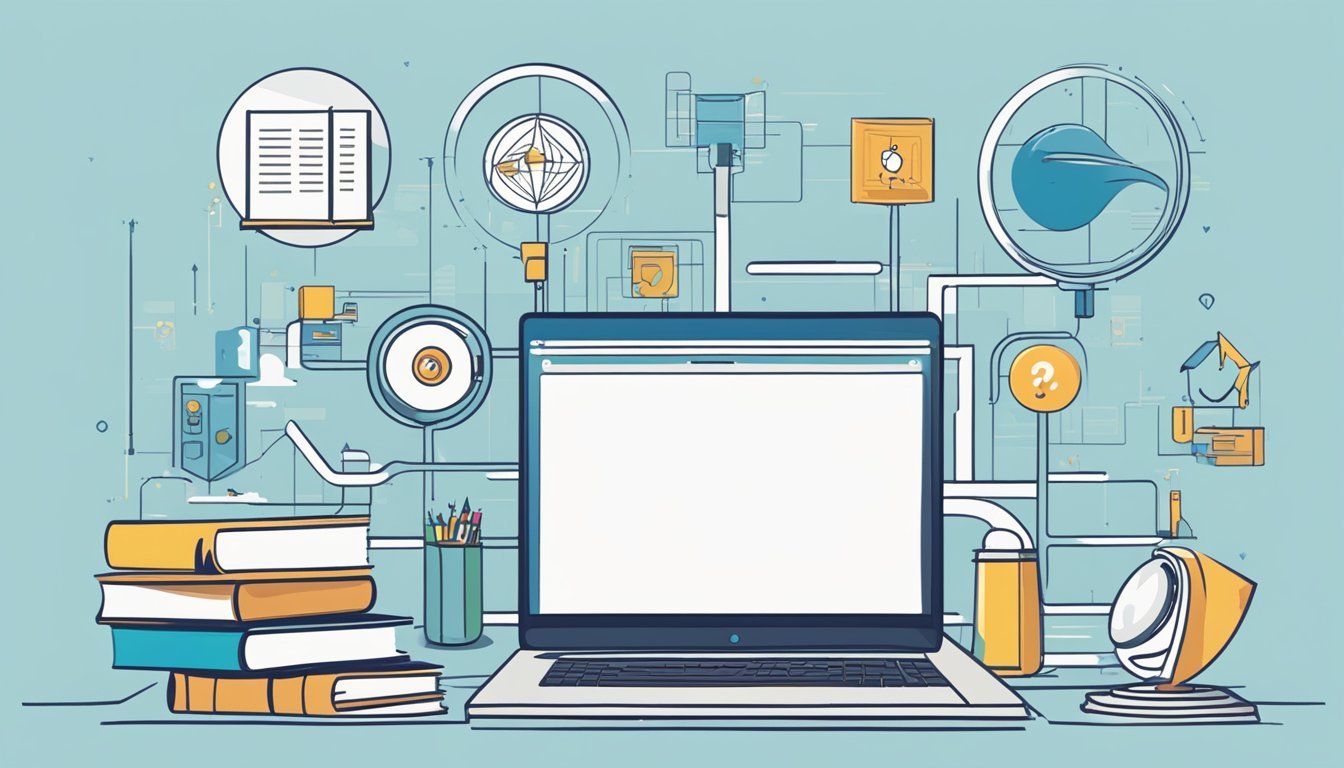Navigating the Future: Mastering Continuous Learning for Tech Professionals
In the fast-paced world of technology, continuous learning is essential for professionals to maintain their relevance and competitive edge. The nature of the tech industry, marked by rapid advancements and evolving best practices, requires a proactive approach to education and skill acquisition. Individuals who engage in ongoing learning processes demonstrate adaptability and a drive to excel, positioning themselves as invaluable assets in their respective fields.
Continuous learning is not just about keeping up with the latest programming languages or software tools; it's also about cultivating a mindset geared towards growth and improvement. Whether it's through formal education, online courses, or self-directed study, tech professionals who embrace lifelong learning find themselves better prepared to tackle new challenges and seize opportunities for advancement.
Embracing Change in Tech
The tech industry's landscape is continuously shaped by rapid advancements in technology and digital transformation, necessitating a culture of continuous learning and innovative thinking for those invested in staying relevant.
Understanding Continuous Learning
Continuous learning in the tech sector is the ongoing pursuit of knowledge and skills in response to changing technological landscapes. It involves a proactive approach to education, with individuals and organizations recognizing the need to update competencies and adapt to new systems and tools. By engaging in programs and platforms that facilitate upskilling and continuous learning, tech professionals can maintain a competitive edge in a market that values expertise in the latest technological trends.
Key Aspects of Continuous Learning:
Active participation in educational workshops and online courses
Regular self-assessment to identify learning needs
Application of new skills in practical, real-world situations
Navigating Digital Transformation
Digital transformation represents the integration of digital technology into all areas of business, fundamentally changing how organizations operate and deliver value to customers. They must foster innovative thinking to craft strategies that leverage the potential of new technologies. A report by Forbes highlights the critical nature of embracing continuous learning within this context—leaders in tech are tasked with not just overseeing the introduction of new technologies, but also ensuring that their teams evolve their skillsets alongside these digital changes.
Elements Influencing Digital Transformation:
Adoption of cutting-edge technologies
Revamping of business models to fit a digital-first approach
Cultivation of a workplace environment that encourages innovation and adaptability
Building a Culture of Learning
In the dynamic realm of technology, success hinges on the ability to foster a culture of learning. Organizations that encourage continuous skill development and knowledge expansion are more equipped to navigate challenges and leverage new opportunities.
Developing a Learning Culture
A learning culture in a tech team is cultivated by integrating learning into the very fabric of the organization. This involves embracing a mindset where education is ongoing and not limited to formal training sessions. Tech teams must have accessible opportunities for skill advancement and be encouraged to partake in knowledge-sharing activities. Such a culture supports the idea that proficiency is not static and that improvement is always possible.
Leadership and Learning
Effective leadership plays a pivotal role in the establishment of a learning culture. Leaders should exemplify a commitment to their own development while promoting and facilitating learning opportunities for their teams. By doing so, they not only inspire but also create an environment where employees feel valued and challenged. Leaders who prioritize employee engagement by investing in learning platforms demonstrate their dedication to both individual and organizational growth.
Cultural Transformation Initiatives
To drive a cultural transformation toward a learning-centric mindset, deliberate initiatives must be implemented. These could range from providing resources for self-paced learning to setting up structured mentorship programs. Companies might also create reward systems that recognize and celebrate educational achievements, further embedding learning within the corporate culture. Thus, a shift to a learning culture becomes a strategic imperative, affecting all aspects of business operations and elevating the organization's capacity to adapt and innovate.
Strategies for Continuous Improvement
In the dynamically evolving tech landscape, continuous improvement through learning is not just a benefit but a necessity for success. Here's how individuals and organizations can align their learning objectives with actionable strategies.
Defining Clear Learning Goals
Setting specific, measurable, and achievable learning goals provides a roadmap for professional development. These objectives should be aligned with both current industry demands and future tech trends to ensure relevancy. For example, a software engineer might aim to master a new programming language that is gaining popularity in their sector, or a data analyst may target proficiency in a cutting-edge data visualization tool.
Short-term Goals: Could include completing online courses or certifications within a few months.
Long-term Goals: May involve gaining expertise in a new technology over the next year.
Leveraging Technology for Learning
Technology itself is a powerful enabler for continuous learning. Tools such as virtual labs, online courses, and interactive coding platforms offer hands-on experience and immediate application. For instance, cloud-based learning platforms enable users to engage with material anywhere, fostering a flexible learning environment.
Learning Management Systems (LMS): Centralize resources and track progress.
Key Tools: Include webinars, podcasts, and online forums for peer-to-peer learning.
Continuous Learning Methodologies
Adopting a methodology can streamline the learning process and enhance its effectiveness. Agile learning strategies adapt to change quickly, reflecting the iterative nature of tech projects.
The 70-20-10 Model: Suggests that 70% of learning comes from on-the-job experiences, 20% from interactions with others, and 10% from formal educational events.
Microlearning: Involves short, focused segments of learning designed to meet a specific learning outcome, making it easier to retain and apply new knowledge.
Professional Development and Growth
Professional development in the tech industry hinges on continuous upskilling and reskilling, leveraging networking for professional growth, and utilizing learning opportunities to propel career advancement.
Upskilling and Reskilling
In the rapidly evolving tech sector, professionals often find that upskilling—the acquisition of new and relevant skills—is essential, not just for keeping pace with technological advances but also for advancing their careers. Similarly, reskilling allows individuals to pivot and adapt to new roles or functions within their organization. Forbes highlights that the need for upskilling is more critical than ever in 2023.
Upskilling: Targeted learning initiatives to enhance current skill sets.
Reskilling: Learning new skills for a different job function.
Networking and Professional Growth
Networking is a powerful tool for professional growth in tech. Engaging with peers, mentors, and industry leaders opens up avenues for collaboration and knowledge exchange. These interactions can lead to new opportunities and insights about emerging technologies and industry trends, important for keeping skills relevant and advancing one's career.
Professional Networks: Community engagements, mentorship programs, industry conferences.
Knowledge Exchange: Sharing experience, skills, and new tech insights.
Career Advancement through Learning
Continuous learning is integral to career growth, with tech professionals often embracing various learning platforms to stay ahead. Through a commitment to ongoing education, individuals enhance their career prospects and position themselves for promotions or new roles. Coursera’s article on tech learning stresses the importance of integrating continuous learning initiatives into career development plans.
Learning Platforms: Online courses, workshops, webinars.
Career Prospects: Role enhancements, promotional opportunities, industry recognition.
Technical Skills Acquisition
In the fast-paced realm of technology, professionals are expected to evolve continuously, sharpening their technical skills to stay competitive. Mastery in programming and coding remains fundamental, while expertise in emerging technologies and obtaining relevant certifications can significantly enhance one's career trajectory.
Programming and Coding
Programming and coding are the backbone of the tech industry. Proficient understanding of programming languages such as Python, Java, and C++ is crucial. Individuals should engage in hands-on practice and contribute to real-world projects, which could involve developing software applications or constructing websites. Resources such as GitHub offer an avenue for developers to collaborate and showcase their coding prowess.
Tackling Emerging Technologies
Keeping abreast of technological advancements is imperative. Disciplines like artificial intelligence, blockchain, and cloud computing represent areas of significant growth and opportunities. Learning the intricacies of these technologies through dedicated platforms can help tech professionals adapt and harness these innovations for advancing their projects or career.
Certification and Specialization
To validate expertise, professionals often pursue certifications. For example, Microsoft certifications are recognized credentials that demonstrate proficiency in various Microsoft technologies and platforms. Similarly, industry-specific certifications in artificial intelligence or cloud computing equip individuals with the specialized knowledge that can distinguish them in the job market and may lead to career progression.
Learning Resources and Modalities
The technology landscape continually evolves, necessitating tech professionals to leverage a variety of learning resources and modalities to keep pace with new developments. From structured online courses to interactive seminars, each modality caters to different learning styles and needs.
Online Courses and Webinars
They provide a flexible and accessible means for professionals to acquire new skills. Many platforms, including Coursera, offer tech learning initiatives that are key to staying updated. Microsoft Learn is especially renowned for providing comprehensive learning and development programs that focus on their technologies, featuring a mix of written tutorials and interactive coding environments.
Seminars and Workshops
In-person seminars and workshops foster hands-on experience and direct interaction with experts. These events are often more immersive, allowing attendees to practice new skills in real-time. Training resources provided during these sessions are invaluable, offering insights into practical applications of theoretical knowledge.
Personalized Learning Paths
Personalized learning paths allow individuals to tailor their learning and development programs to suit their career goals. This often involves a combination of online courses, webinars, seminars, and guided tutorials to create a comprehensive and coherent learning journey. This individual-centric approach ensures that professionals engage with material that is most relevant to their growth.
Enhancing Creativity and Productivity
Within the technology sector, professionals who actively embrace continuous learning are often the ones who drive innovation and exhibit higher productivity. This dedication to ongoing education enhances their creativity, problem-solving skills, and engagement with their work.
Tools for Innovation
In the pursuit of innovation, a multitude of tools serves as catalysts for creative thinking and developing new ideas. Software such as open-source platforms enable tech workers to collaborate and experiment with a variety of solutions. Meanwhile, project management applications help streamline workflow, ensuring that time is dedicated to fostering innovation rather than being lost to inefficiency.
Collaborative Platforms: Examples include GitHub and Confluence, which facilitate sharing and improve collective problem-solving.
Project Management Tools: Trello and Asana, for organizing tasks and allowing more time for creative processes.
Fostering a Growth Mindset
Cultivating a growth mindset is crucial for technology professionals. This mindset frames challenges as opportunities to learn rather than insurmountable obstacles. Continuous learning initiatives provided by companies, such as those mentioned in Tech Learning: Key Areas for Continuous Learning Initiatives, play an essential role in this cultivation.
Professional Development Programs: Encourage skill expansion and mastery of new technologies.
Encouragement of Curiosity: Companies that prioritize learning embolden employees to seek knowledge and embrace innovative thinking.
By providing the tools for innovation and nurturing a growth mindset, technology companies can significantly boost their team's productivity and drive competitive advantage through enhanced creativity and engagement.
Data Science and Analysis
Data science and analysis intersect at the core of unlocking insights from vast quantities of data. They are essential in translating complex data into actionable intelligence through a combination of machine learning, statistical inference, and data analysis techniques.
Machine learning serves as a pivotal tool in data science, enabling the automation of predictive models. These models learn from previous data and can be deployed to forecast outcomes with impressive accuracy. It’s used extensively for classification, regression, and clustering tasks.
Data analysis, on the other hand, revolves around processing and performing statistical analysis on existing datasets. Analysts foreground clear visualizations and straightforward interpretations to assist businesses in decision-making processes. They harness a variety of tools and programming languages, with Python being the leading language due to its simplicity and the rich ecosystem of data analysis libraries like pandas and NumPy.
In the workflow of data science and analysis, one typically collects and cleans data, explores it to identify patterns or anomalies, and then applies machine learning algorithms to make predictions or segment data. This cycle is iterative and allows for continuous refinement of models and strategies.
The value delivered by data science and analytics is seen across all sectors—finance, healthcare, retail, and more. The ability to glean insights from data gives companies a significant competitive edge. For those looking to excel in this field, proficiency in machine learning concepts, data analysis techniques, and mastery of Python are non-negotiable.
Professionals in this domain are highly sought after for their skills in converting a deluge of data into a clear narrative that drives strategic business decisions. The demand for data scientists and analysts is growing as they continue to play a crucial role in the industry's evolution.
The Human Factor in Tech
As technology continuously evolves, the human factor remains a critical component for success in the tech industry. Understanding and enhancing the human aspects such as collaboration, soft skills, and curiosity are essential to maintaining a competitive edge.
Promoting Collaboration and Teamwork
In the tech industry, collaboration is synonymous with innovation. Teams that prioritize collaboration tap into diverse perspectives, which often lead to more creative solutions. Tools and systems that facilitate seamless cooperation between team members are paramount. For instance, using platforms designed for sharing code and project management can streamline workflows and enhance team productivity.
Developing Soft Skills
The development of soft skills is as important as technical competencies. Aspects such as effective communication, empathy, and adaptability are indispensable in navigating the complexities of the tech landscape. Tech professionals who can articulate complex ideas clearly and relate to the needs of clients and coworkers are highly valued. They play a crucial role in bridging the gap between technology and its users, nurturing an environment conducive to growth and resilience.
Fostering Curiosity and Engagement
A culture that encourages curiosity stimulates continuous improvement and learning. Tech professionals who engage with their work are more likely to pursue ongoing education and stay updated with the latest technological advancements, maintaining their relevance and motivation in a fast-paced industry. Opportunities such as hackathons and collaborative projects can ignite passion and drive amongst team members, encouraging them to explore new ideas and approaches.
Preparedness for Technological Shifts
In an era where technological advancements occur at a breakneck pace, being prepared for tech shifts is crucial. There are specific domains within the tech industry that, when addressed, can significantly improve an organization or professional's readiness for change.
Learning in the Age of Pandemics
The onset of the pandemic has driven a paradigm shift in how professionals approach learning and development. Continuous learning is no longer optional; it's an essential strategy for individuals and organizations. Remote learning platforms have gained prominence, allowing for skills enhancement to occur from anywhere in the world. This digital transition emphasizes the need for robust IT infrastructure to support the high demand for online education services.
Cybersecurity and Data Protection
With the expansion of digital operations, the threat landscape has evolved as well. It's vital for organizations to invest in cybersecurity measures to protect sensitive data. They must stay abreast of the latest security protocols and embed data protection practices into their corporate culture. Employees must be trained to recognize potential threats such as phishing attempts, and security policies should be clear and regularly updated.
The Influence of Tech Pioneers
Influential figures such as Elon Musk shape public perception and investment in emerging technologies. Musk's endeavors with companies like SpaceX and Tesla highlight the implications of rapid innovation cycles and the benefits of staying ahead. Tech pioneers provide a blueprint for how continuous learning can lead to creating groundbreaking technologies and achieving long-term success amidst technological shifts.
Long-term Career Success
Achieving long-term success in the technology sector is predicated on the ability to maintain relevance and invest in continuous personal and professional development. These factors are intrinsic to fostering engagement, ensuring retention, and nurturing a resilient career trajectory.
Maintaining Relevance in a Competitive Field
In the fast-paced realm of technology, staying relevant is not merely advantageous – it is essential. Professionals must adopt a mindset shift towards lifelong learning to keep abreast of the latest trends and technologies. An IDC white paper underlines the importance of such an approach, indicating that those who embrace a growth mindset significantly benefit their careers. They often participate in training and development programs, which are pivotal for retention and long-term viability in the industry.
Investing time in hands-on experience is also a critical aspect of maintaining competitive edge. It ensures that theoretical knowledge is effectively translated into practical expertise, thereby enhancing the individual's value in the marketplace.
Investment in Personal and Professional Development
Successful technology professionals understand that investment in their development is fundamental to achieving long-term success. Such investment isn't solely financial; it's a dedication of time, effort, and resources towards professional growth. Through sites like Copilot Careers, individuals can learn that a continuous learning strategy is not just beneficial but necessary for enduring success in the tech industry.
Employee engagement increases when individuals have access to training and development opportunities, which in turn leads to better retention. Recognizing the exponential growth of technology, upskilling becomes a paramount component of professional evolution, as noted by resources like the Institute of Entrepreneurship Development. This continual development is mutually beneficial for the individual seeking to climb the career ladder and the organizations that depend on skilled employees to innovate and thrive.





